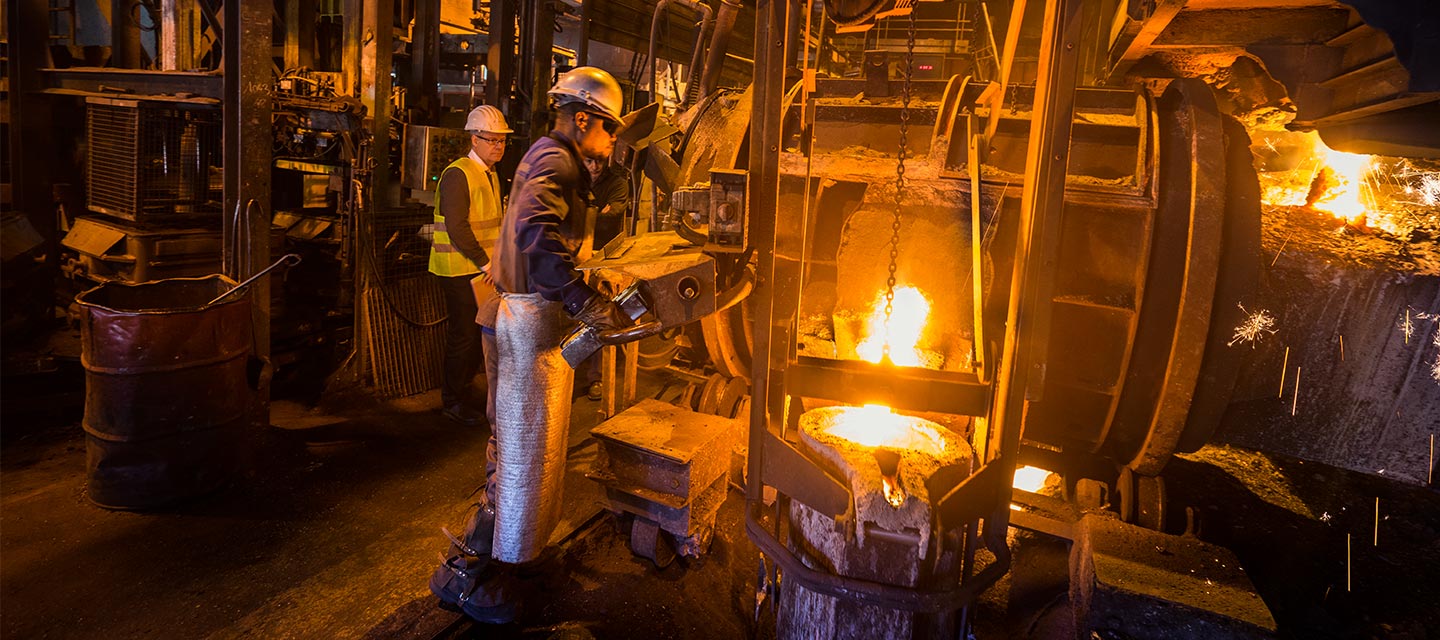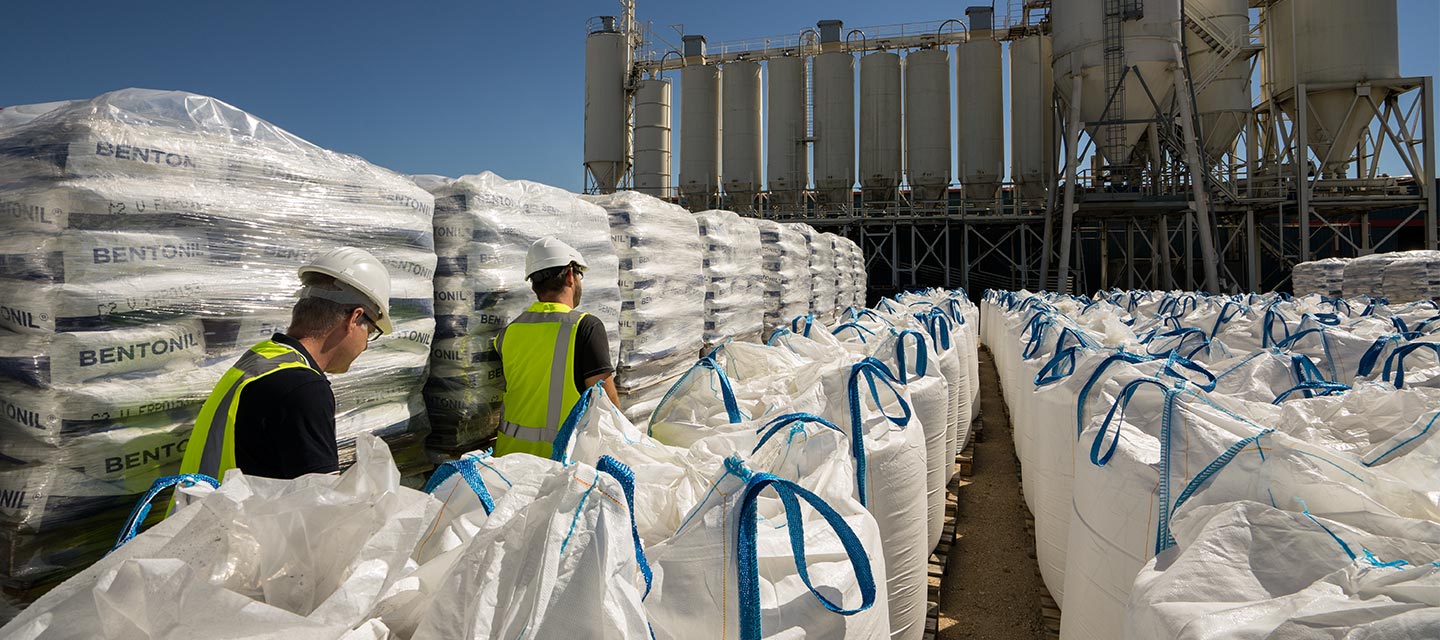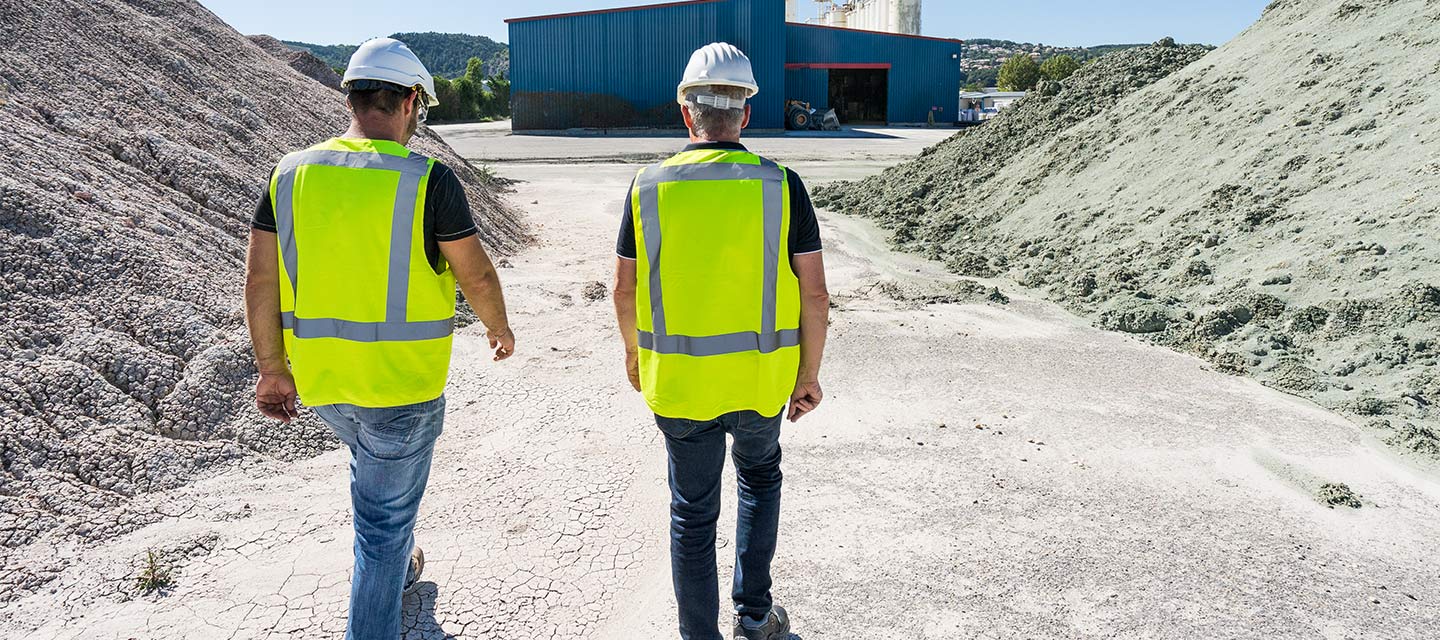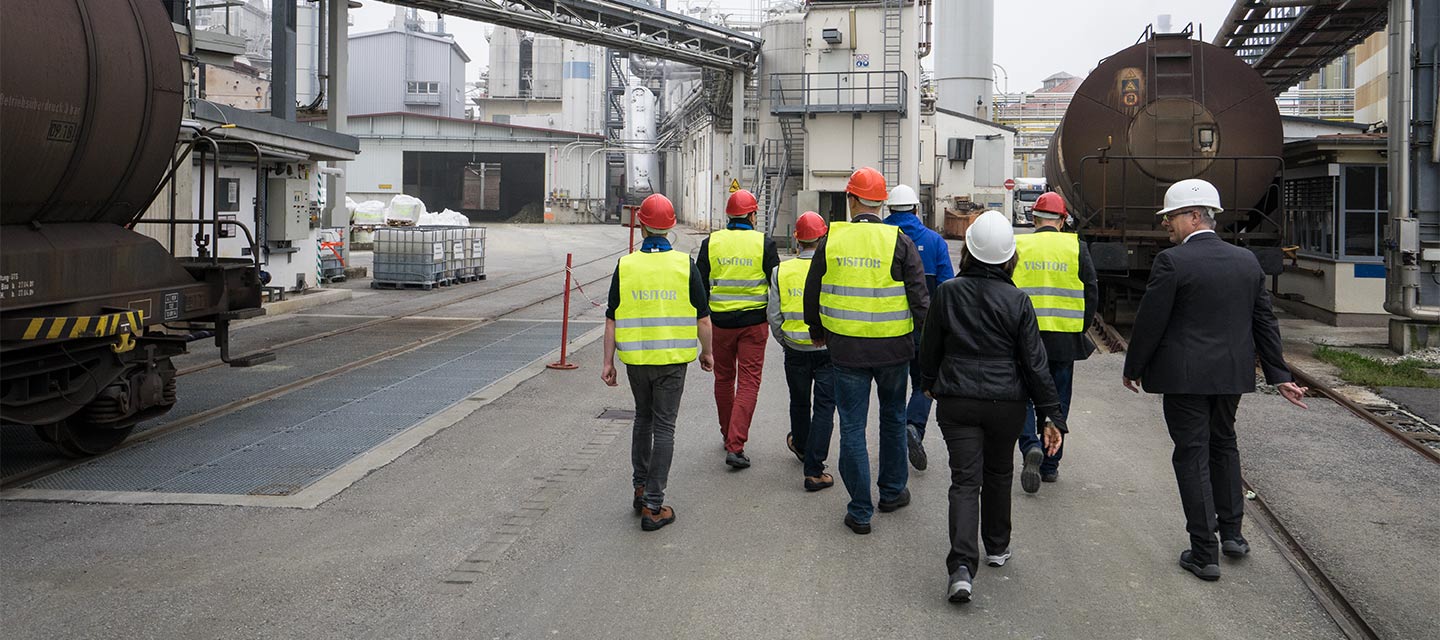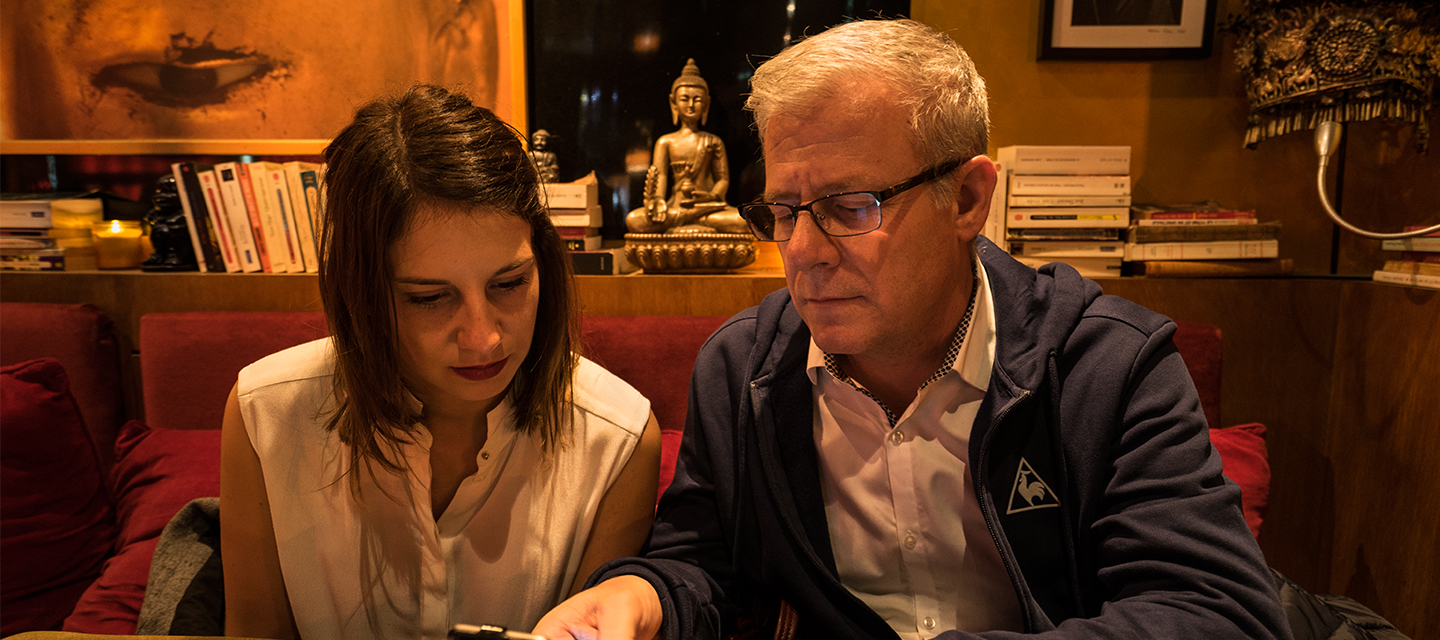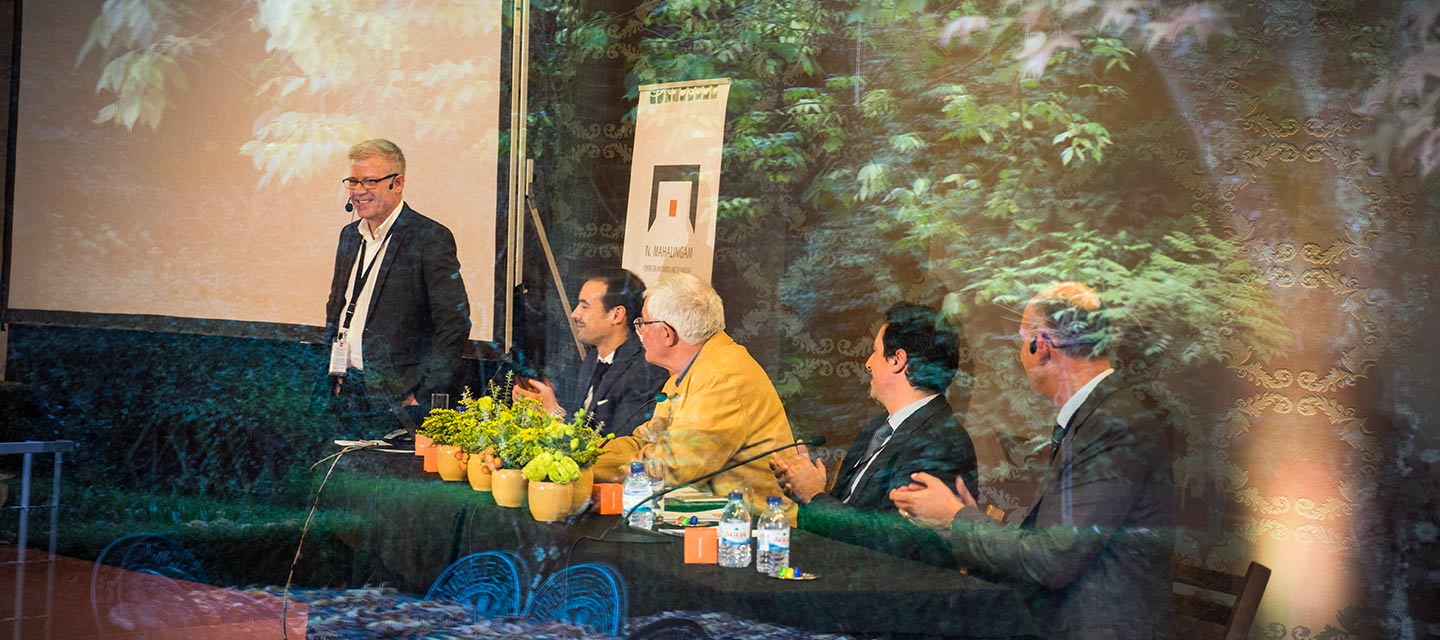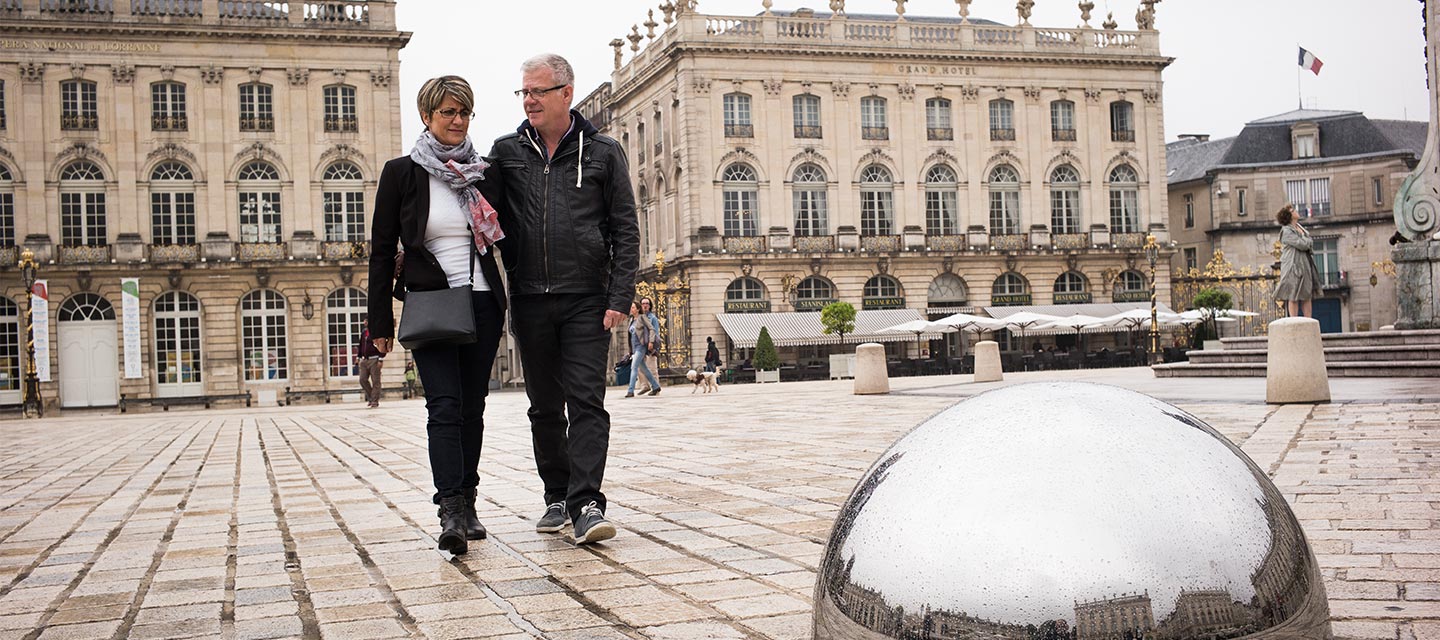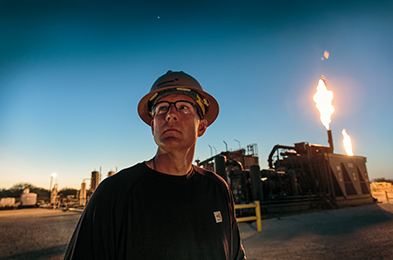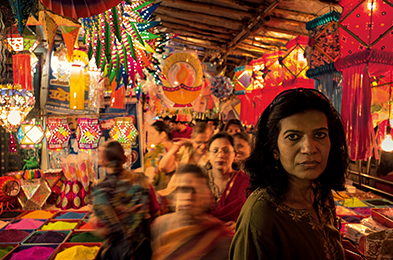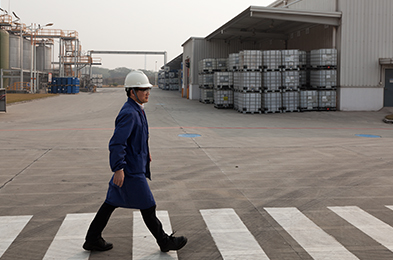One
Clariant
Lorenzo’s earth. The riches of the European soil mean a lot to Lorenzo Sechi. A Frenchman by passport and a Sardinian by ancestry, he enjoys a good wine if the time is right. And in his business life, he devotes himself to an alkaline clay used in foundries and other industries. It means traveling and talking his way through the old continent, to create value for the company – and being in his favorite spot: all over.
Concept and photography by Jo Röttger
Text by Bertram Job
Lorenzo Sechi no longer arrives by ferry when life leads him back to Sardinia. He lands by plane in Alghero in the northwest region of the island. From there, it is a short taxi ride to the hotel by the sea where his next appointment is scheduled. At sunset, he and several colleagues will welcome a small delegation from an important potential new customer on the terrace, followed by dinner together. The dinner will include an assortment of seafood, cold-pressed oils and wines, and the underlying hope on the part of the participants that a fruitful collaboration will take form.
The Sardinian soil yields much more than magnificent vines and gorgeous olives. Deposited here and there in its deeper layers, there is also high-quality bentonite – a clay mixture of different minerals and volcanic ash. Its absorbing properties can be used in a variety of applications, including pharmaceuticals, food purification, foundry industry and even in iron ore pelletization, which makes up part of the operations of the guests’ company.
This big player, which is on the lookout for new suppliers, could signify a potential business case for Sechi and his company. The mineral known as calcium bentonite is mined almost exclusively in Clariant Ltd’s mines on the island. The island could also be considered a very important part of Lorenzo’s world, because Lorenzo, a man with gray-blonde hair, born in 1967, comes full circle here personally.
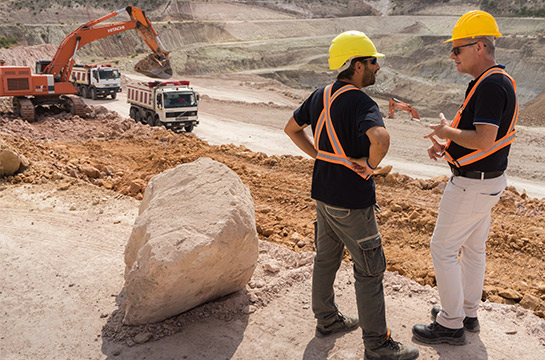
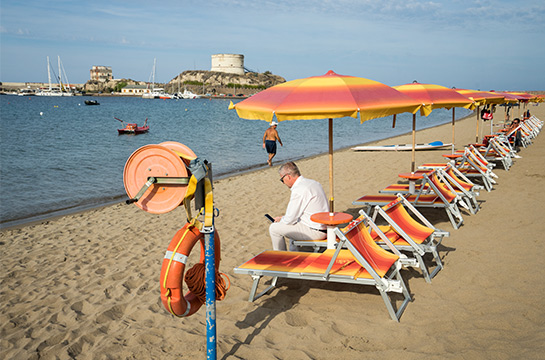
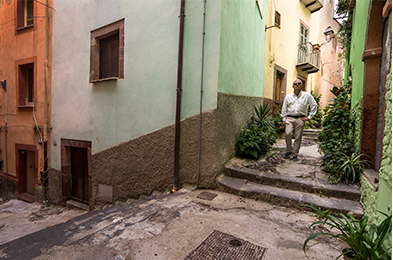
It was much more difficult in the past when his father Vincenzo schlepped the entire family over from Lorraine to the port of Toulon by bus and train with all their suitcases and bags, and then onto the ship to Porto Torres, and then from there down the coast to Bosa. However, his three children didn’t think much of it. They looked forward to the summer vacations in the place where the Sechi family originated. They got to enjoy the beach in Bosa Marina, the company of aunts and nieces, and Uncle Pietro’s winery in the mountains.
»My father and I rode up on donkeys,« Sechi recalls, »and slept in a barn on fresh hay. It was really fantastic.«
Since then, life has taken on a much quicker pace. The lively boy who used to throw himself into each wave in the ocean around Sardinia now plays a key role for his company today. Sechi heads the Foundry Additives business group, whose products contribute significantly to the increasing sales of the BU Functional Minerals. He also brings his expertise and youthful charm to all matters related to value creation in clays. This is even the case now, during the two days of talks and visits.
Sechi – who is half Sardinian, carries a French passport, has a mother with German ancestry, and a Portuguese partner – is the quintessential European, and he is constantly zipping across the continent for his job.
On one particular morning, Sechi’s travels bring him to Beauce, the wheat-producing region southwest of Paris. Here, a medium-sized foundry is tucked away among fields and villages. This is a customer visit without the need for rigid etiquette, as most of the participants have known each other for several years. Sechi recounts that he even found the managing director a job once. At the reception desk, Sechi is recognized immediately. For the rest of the time there, everyone will know and refer to him as Lorenzo.
The few matters that needed to be discussed could probably have been resolved over the phone. However, Sechi is convinced that in this industry, when in doubt, it is better to be there in person. And ultimately, he may also need to be there for his own reassurance. The tour passes through dim halls, which are illuminated by the glistening light of the liquid steel. The visitors exchange glances with the employees, who peer out through protective masks. Industry 1.0 with the most up-to-date technology and safety features.
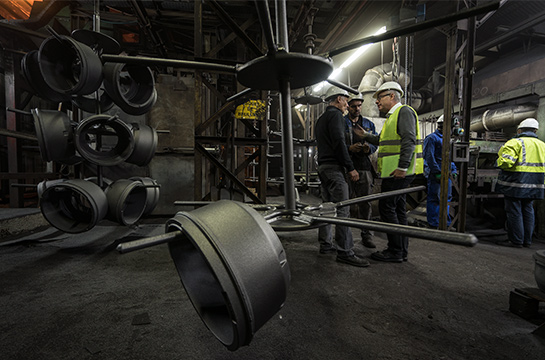
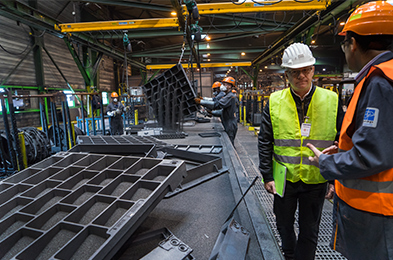
»These people do not have time to spend hours discussing,« Sechi shared before the visit. »They get straight to the point, and they want to see the sparkle in your eyes when you’re standing here. If you don’t have that, forget it!«
Sechi already had that sparkle at 16 when his high school class in Lorraine took a field trip to a foundry. After that, it was clear where his path would lead – to the foundry trade school in Nancy. He followed in his father’s footsteps, but took a courageous step further. Instead of becoming a shift worker, he became a technician and then a manager. He recounts that in doing so, he learned more than he ever expected, and that he even achieved far more than many thought he could.
»They get straight to the point, and they want to see the sparkle in your eyes when you’re standing here. If you don’t have that, forget it!«
Sechi has maintained a sense of respect and appreciation for the hard work involved. And he has obviously maintained the sparkle. You can see it in his face as plans and materials start to take concrete form, such as when brake discs for trucks and buses are manufactured with the help of »his« bentonite additives. These accomplishments are made possible by men who know how to get things done and appreciate the cigarette breaks during the process.
As Sechi explains quite amusedly, casting and smoking just seem to go hand in hand here. So Sechi happily smokes here too, more than usual, and enjoys the time away from the complexities of the world. The relationships that have been established here have since become as solid as the iron itself.
»These people would never take one gram of bentonite from anyone else. Not as long as we maintain this quality and deliver reliably.«
On another business trip, Sechi is whisked away for an entire day and a half to Moosburg, a town located in the province of Upper Bavaria. The zeitgeist that is reflected in the older parts of Clariant’s local production and research facilities – like in the old villa of August Ostenrieder, the »father of bleaching earth,« who founded the Moosburg clay factory in 1906 – is unmistakable. Today, the former villa has a meeting room that Sechi rarely uses because he is able to directly reach the handful of employees in his business group who are employed here.
Production, processing, testing, and optimization activities have continued for more than 100 years at this historic location, situated 20 kilometers from a bentonite mine. To ensure that operations continue smoothly, Sechi touches base in Moosburg every other week on average. He has become a regular customer in the hotel at the train station and in the Italian restaurant in the center of town. Sechi points out excitedly that a Sardinian is a cook there, as if he were one of his fellow countrymen.
Coordination is key. Bentonite is produced at a dozen locations in Europe alone. But service, research and innovation play an equally important role. With the two most important additives in the product group, foundry emissions of toxic compounds such as benzene have already been reduced by over 50 %. This low-emission line continues to be expanded with additional products. This supports more sustainable production – and with it, future market success.
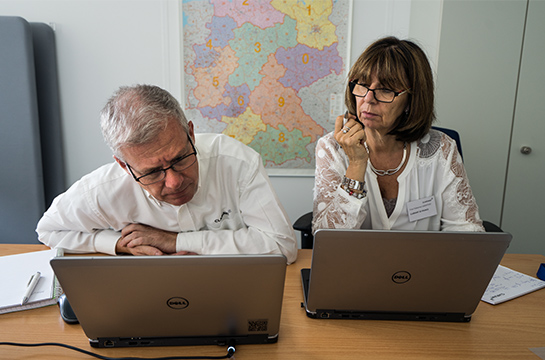
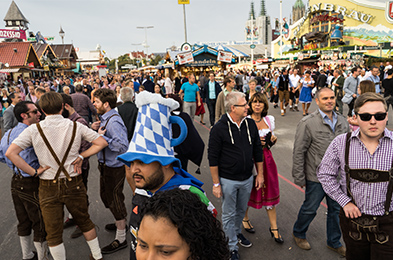
As the top manager, Sechi is constantly zipping back and forth between yesterday and tomorrow, and between engineers and sales managers. His speech is calm and his manner is not at all pompous. He is a leader who sees himself as a member of the team. He explains, »You have to show people respect if you want them to respect you. That’s why I try to explain things instead of simply demanding things, which only adds pressure...«
A lot needs to happen before this approach is changed to a less gentle one. Only then does the stereotypically stubborn Sardinian personality show. This was the case when Sechi worked as a site manager in Bangkok, where at one time he replaced the entire workforce. This created a much-needed turnaround in operations. »But there was a weekend where, besides the secretary, I was alone at the company,« he recounts.
Lorenzo Sechi likes to be agreeable, but not at the cost of the successful outcome of his mission. »I always try to stay zen,« he says. »But it doesn’t always work.«
A stopover during Sechi’s travels brings him to Choisy-le-Roi, one of the amorphous suburbs south of Paris. On the second floor of the company’s French headquarters, Sechi has an office without any family or vacation photos. The message being conveyed is: »This is strictly business!« From here, Sechi is able to plan and synchronize his activities and those of the business group. But Sechi hardly feels at home here. He is only on-site two or three days per month on average.
Thus, Sechi has a home base that really isn’t one, and a team that is set up mostly virtually. There is an office for Bruno, the sales manager whom Sechi stole away from a foundry, and one for Michel, who takes care of product management. Fabienne also works here. No one in the company, or even on this planet, knows Sechi’s strengths and weaknesses as well as his trilingual assistant. She has scheduled his appointments for over 25 years. As Sechi likes to joke, she is not allowed to retire before him.
Nine sales managers are also part of his team. They hail from different corners of the EMEA region, including Sweden, Spain, Portugal and Turkey, in addition to Middle East. Thus, Sechi has an extensive network of employees from all over that Sechi trusts based on his positive experience from working with them. »My success is my team’s success,« he says. »It’s that simple.«
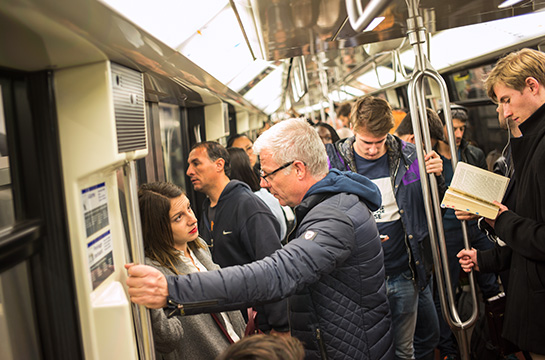
In the evening, there is still time to have dinner with his daughter Manon. She has just found her first job in the fashion industry in Paris and has so much to talk about. Over the next few days, he will call his son Vincent, who is studying in Reims. It is a difficult trip to Paris city center, which is nearly paralyzed with congestion due to an inordinate number of cars and heavily armed policemen. Nevertheless, the father and his daughter have their set meeting point on the Champs-Élysées, where they are able to enjoy their precious time together. After that, he’s off again to the periphery of the city near Orly Airport, where Fabienne has booked him a room in a hotel that is reminiscent of a barracks for the international guard of frequent fliers.
Sechi explains that on such a wonderful evening, you can’t be concerned with what just happened in the middle of Paris and what could still happen. »We have to live. Otherwise, we have already lost.«
Next, Sechi is off to northern Portugal for the inauguration of an international center for foundry technology. Here, he will act as a representative and deliver a speech in an old palacio. He then continues onward to Munich for the five-day Clariant Excellence Academy seminar, which is regularly organized with the intention of providing managers within the company with new inspiration and continued training in methodologies. This is followed by a trip to Tyrol for the annual BU meeting, where the atmosphere among the participants is quite relaxed owing to the record-breaking annual results. And thus the travels continue.
»If I had to be in the same office every day, I would die. I hate doing the same thing for more than two days in a row.«
The incessant back-and-forth has long become a true constant in this postmodern life, and the pace is quite rapid. This is reflected in Sechi’s approximately 200 flights taken each year, and his more than 50 000 kilometers traveled on the road. But he is far from complaining. »If I had to be in the same office every day, I would die. I hate doing the same thing for more than two days in a row.«
One might have the impression that these words were uttered by someone who touts their strengths and then disappears in the critical moment when they’re needed the most. But Sechi has earned the right to say that he has always delivered. This holds true to his favorite motto: »There are no problems. Only solutions.«
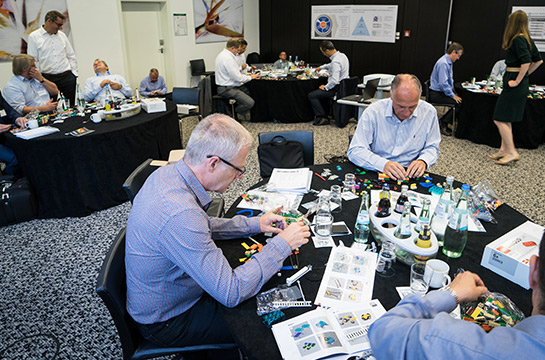
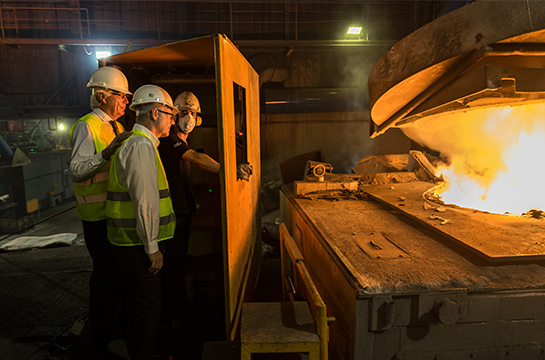
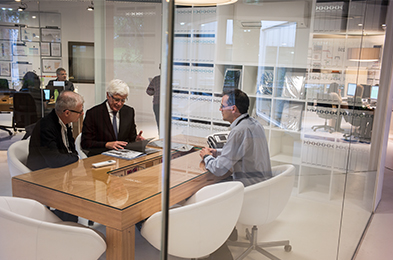
Portugal
Porto, Maia, Sakthi FoundrySechi was 31 when he went with his young family to Bangkok to set up a new site for the company. In the beginning, there were only two employees, whom he hardly understood, and he had no office of his own. Eight years later, the site has become a profitable part of the company, and Sechi has become half Thai, which some customers and colleagues like to say in good fun. When he left, the staff was clearly going to miss him. »Even the sales managers cried,« he recounts.
Soon after that, there was another site to look after in the People’s Republic of China, a few kilometers from the border with Mongolia. It was tedious but also rewarding to bring it up to European standards. Back in France, similar assignments followed, which Sechi tackled from Reims.
Wherever the committed Sechi appears – be it in Poland, Sweden, Mexico, Brazil, Milan or Sardinia – there will eventually be more solutions than problems. In Sardinia, Sechi has been a managing director for about two and a half years. The staff listens to him – and not just because of his Sardinian roots.
Something about his way of dealing with people might also play a role. »At the very least, I get people to follow me,« he says. »I don’t know why. Perhaps it’s because I’m quite natural. It’s easy to see if I’m happy.«
As a child, Lorenzo Sechi learned to overcome linguistic and cultural differences so that he could step into the game and play alongside everyone else. The children of immigrants from different parts of the world – from Portugal to the Maghreb – would play together in the street in Custines, which is 15 minutes from Nancy by car. »It was a wonderful mix of people,« he says. Once the neighborhood’s fathers sped off on their mopeds to the nearby foundries, the road was an open field for the kids to share adventures together. This street is still a place of refuge. Germaine Sechi still lives in the same house, and is cared for primarily by her daughter Sabrina. But her eldest, Lorenzo, now prefers to stay indoors. Outside, everything is deserted. There is nothing to see. As his mother remembers, Lorenzo was always on the move – and talked incessantly. A framed photo in the living room shows him as a cheerful boy with wiry hair. Another shows Lorenzo’s father, who has passed, and who looks a lot like Lorenzo.
Vincenzo Sechi was a star in his son’s eyes when he told him about the foundry. This world has disappeared from Lorraine, but Lorenzo has been able to preserve a few of the values of this world. After over 27 years in the same company, he continues to exhibit loyalty, respect and reliability.
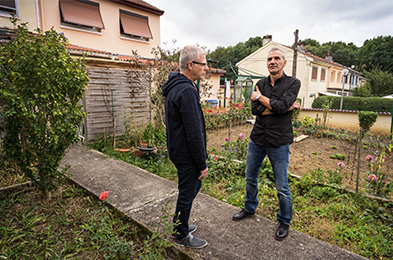
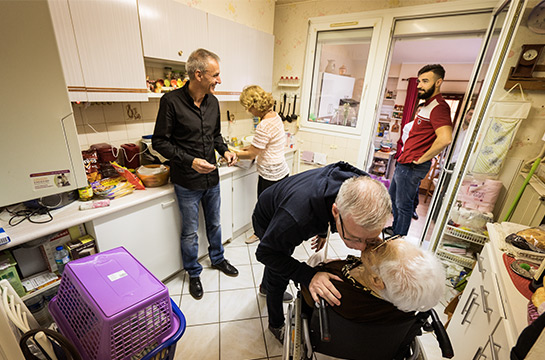
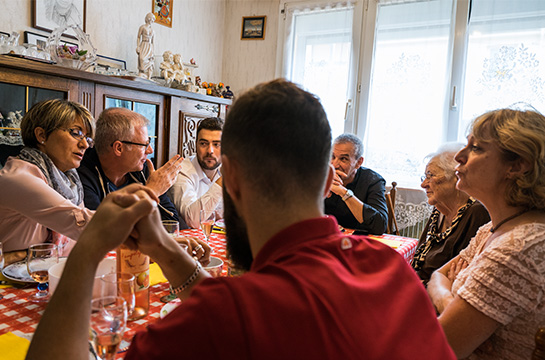
Communication has since become much faster. In almost any situation, one can react instantaneously. This benefit has come along with a certain cost for Sechi. Everyone produces mountains of e-mails instead of making decisions independently. Everyone is trying to be more and more like each other instead of venturing down their own paths. »People spend hours in front of their laptops and think that is the best way to make themselves understood. But people interact best when they meet in person, when feelings are able to be conveyed through body language in addition to words.«
»I feel at home when I’m with people who enjoy their time with me. Relationships are more important than places that you can travel to.«
But how can one be at home when he is constantly »in transit« between two meetings or two locations? Together with Marie, his new partner, Sechi recently moved into a house in Bourgoin-Jallieu, a charming town between Lyon and Chambery. There, they have been able to put down some roots without causing him any worry. »I feel at home when I’m with people who enjoy their time with me. Relationships are more important than places that you can travel to.«
There are no tangible results even on the third day Sechi spends in Sardinia with the delegation from the potential customer. But there are some initial signs. The guests have seen the mine above Alghero and the production process in Oristano. They are impressed by the meticulousness and sustainability of the operations. Now it comes down to the next steps. In the best case, it could be a sustainable deal. Sechi knows this, and yet he remains calm. It quickly looks promising though. For Sechi, the tour also served as a reunion with several employees he got to know during his time as managing director, including Franco, whom he considers a brother, and who took over his old position. If the deal comes to fruition, Sechi would be especially happy for the men and women who welcomed him on the island with open arms. »I’m doing this first and foremost for them and their families. Their jobs would be secured for years to come. There are not very many jobs here...«
The next morning, Sechi returns to Alghero Airport for the trip back to France. He will be at home with Marie for a half hour and will then visit two customers after that. But one day, he wants to take the ferry back to Sardinia again. »It’s best to go to Genoa,« he thinks aloud, »to depart at night.« A whole night in the belly of the ship, floating along through the Mediterranean Sea: This is the dream of a man for whom things never go fast enough.
About
One Clariant
Five people in five countries, infinite perspectives
For Jo Röttger, there is one basic rule: »You must not betray the trust of the people you are photographing.« In 2012, he developed the photo reportage »One Clariant« according to this premise.
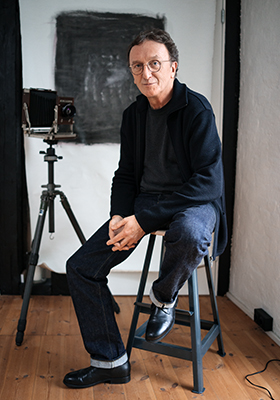
Jo Röttger»Photography captures that something special in every moment. Something authentic that cannot be planned in advance.«
Jo Röttger, born in 1954, studied photography in Dortmund; his photo series have been published in various international magazines. In addition, he is currently working for various clients in the Corporate Communications field and conceptualized his own freelance photo projects for many years. A private project led on to a cooperation with Clariant. In spring 2012, Röttger presented the work »Cross the Stream«, which focused on life near and on the Elbe in Hamburg. Among the visitors was Hariolf Kottmann, who was immediately struck by Röttger’s images. The CEO and the photographer agreed to a joint collaboration for Clariant.
It quickly became clear what topic Röttger should address: What really connects the employees of Clariant? A simple question, but also a major challenge considering its colorful history. What holds a young company together, which is based on so many different traditions? To address this, Jo Röttger traveled to five different regions and met employees that reflect the cultural diversity and global orientation of Clariant. Planned as a series from the very beginning, One Clariant intends to tell real stories from real people in their real environment. After five years, it comes full circle - with the story »Lorenzo’s Earth.«
Röttger is always looking for primitive moments. As such, the initial picture in all One Clariant series is always people in their original landscape. In the landscape of childhood and familiarity. The gaze of the protagonists in these images is directed out of the picture to the left, back into their own history. Where do the people come from? How have they become who they are? And what is important to them for the future? The answers of those portrayed are certainly different, but a common image can be shown in retrospect: Not only do they all have an intimate connection to their families and a deep identification with their home, but also the desire that their own children and future generations in general can lead fulfilling lives. That they discover a planet and a society who also want to preserve this for their children. The landscape represents their own childhood.
Qinglin Zheng, Marcia Rios, Mini Nair, James Begeal and Lorenzo Sechi go to work every day for this vision. Each person knows that a leadership position in a global company also means global responsibility. All of them live globalization by aspiring to impart a similar awareness of sustainable value creation both in their field and in their colleagues. Do to so, they use their positions in the company and their international contacts. And all five meet the basic requirements for their visions: An openness to new ideas and the appreciation of the status quo.
One Clariant as a whole now comes home for Röttger – to Europe – as an award-winning success story. He sets off from the Elbe and it is here where he always returns, to his studio in Hamburg Ottensen. It is here where the photos were laid out on the wooden floor, discussed and made into a story. Into five stories – and to One Clariant. Since the introduction of the new brand in 2012, the photo series is an integral part of the Annual Report. Since then, the public perception of the annual reports has also continuously improved. After three years finishing with top rankings, the 2015 report has been named the best Swiss annual report for the second time after 2013.
This is certainly also thanks to the catchy photo spreads by Röttger, who can capture special moments in each story. Moments that you can’t plan or prepare, that just happened. For example, Qinglin Zheng with his large family sitting at the dinner table and his brother spontaneously raises a toast to the mother. Or in São Paolo, as Marcia Rios shows a church from colonial times whose facade is covered with fungus, for which her department develops fungicides. As Mini Nair ravels into the evening light of Bombay with her children on a ship or as James Begeal says grace with his family. Finally, Lorenzo Sechi, who proudly declares that he comes from a working class family while standing in the home he was raised in. All of them allowed Jo Röttger to photograph these intimate moments. Deep, multi-layered insights into life in and around Clariant.

